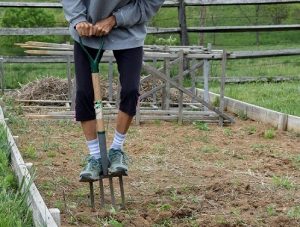Home
Kid Quiz: How well do you know your animals?
Do you love books and TV shows about animals? Are your favorite movies Madagascar, Zootopia, and The Secret Life of Pets? If so, find out how well you know your animals by answering the questions in this multiple-choice quiz.
1. How many teeth do rabbits have?
a) 4
b) 12
c) 28
2. How far away can the roar of a lion be heard?
a) 500 feet
b) 1 mile
c) 5 miles
3. How many vertebrae are there in a giraffe’s neck?
a) 7
b) 21
c) 44
4. What do you call male, female, and baby cats?
a) Simba, Nala and Kion
b) Tomcat, queen, and kitten
c) Buck, doe, and kitten
5. What are horses physically unable to do?
a) See the color yellow
b) Sleep lying down
c) Vomit
No cheating!
Answers: 1-C, 2-C, 3-A, 4-B, 5-C
Home
Streamlining Home Renovations: Effective Storage Solutions for Your Belongings
Embarking on home renovations can transform your living space into a dream abode, but it also brings the challenge of safeguarding your belongings during the process. Whether you’re knocking down walls, updating your kitchen, or adding an extension, significant renovations mean you’ll need a safe spot for your furniture and other items to avoid damage and clutter. Here’s how to ensure your belongings are securely stored, making your renovation project smoother and protecting the items you love.
Choosing the Right Storage Option
- Professional Moving and Storage Services: Many moving companies offer storage solutions tailored for homeowners undergoing renovations. This option is particularly handy because it combines moving and storage, reducing the hassle of dealing with separate entities. Ensure the company is reputable and offers conditions like climate control if needed for delicate items.
- Self-Storage Units: Renting a self-storage unit provides flexibility and accessibility. Whether you need a locker for a few boxes or a mini-warehouse for an entire household, you can select the size that suits your needs. Look for facilities with strong security measures, such as surveillance cameras and controlled access, and consider the location carefully to ensure it’s convenient for frequent visits.
- On-Site Storage Containers: For those who prefer to keep their belongings close, renting a storage container that can be placed on your property is an excellent solution. This option offers easy access to your items whenever you need them. However, check your local zoning regulations and homeowner association rules to avoid any legal issues.
Making the Smart Choice
When deciding among these options, consider factors like the duration of your renovation, the value and sensitivity of your items, and how often you’ll need access to them. Additionally, weigh the convenience and cost of each storage solution against your project’s overall budget and timeline.
Protecting Your Belongings
Regardless of the storage option you choose, take steps to ensure your items are protected:
- Insurance Check: Verify with your insurance provider that your belongings will be covered while in storage. Some policies may require additional riders or adjustments for off-site storage.
- Secure Packing: Invest in sturdy boxes, quality packing materials, and take the time to pack your items carefully, especially fragile ones. Labeling boxes can also save you time and frustration when you’re ready to unpack.
- Regulatory Compliance: If opting for an on-site container, familiarize yourself with any local regulations or restrictions to ensure compliance and avoid fines or complications.
Conclusion
Renovations are an exciting time of transformation for any homeowner. By choosing the right storage solution for your belongings, you can ensure that the process is as stress-free as possible. Whether you opt for professional storage services, a self-storage unit, or an on-site container, the peace of mind knowing your items are safe and sound lets you focus on the exciting changes happening in your living space.
Home
The Ultimate Pantry Cleaning Guide: 7 Steps to Refresh Your Space
Tackling your pantry might seem like a daunting task, especially if it’s been a while since its last deep clean. However, with a systematic approach, you can transform this chore into a satisfying project. Whether you’re a seasoned home chef or someone who loves a well-organized space, follow these seven steps from cleaning and organization professionals to clean your pantry like a pro.
1. Empty Your Pantry
Begin by removing everything from your pantry. This step not only allows you to see all the items you have but also enables you to clean the space thoroughly. You might even find some hidden treasures or forgotten items in the process!
2. Sort Food by Category
Once everything is out, categorize your items. Group spices together, place all canned vegetables in one area and gather your cereals. This categorization will make organizing and locating items easier once they’re back in the pantry.
3. Check Expiry Dates
Go through each item and check its expiry date. Dispose of anything that’s out of date. For items without visible expiry dates, use a reliable source to check their shelf life. Ensuring that your pantry is free from expired goods is crucial for health and safety.
4. Clean Shelves and Walls
With the pantry empty, take the opportunity to clean the interior thoroughly. Use an all-purpose cleaner to wipe down the walls and shelves. This step helps remove dust, crumbs, and any spills, creating a clean base for your items.
5. Wipe Down Containers
Before putting items back, wipe down the outside of plastic and glass containers and bottles. This helps keep your pantry looking clean and ensures no sticky residues are transferred onto the shelves.
6. Organize Items Strategically
As you return items to the pantry, think about their placement. Keep frequently used items at eye level and group similar items together, such as canned goods or baking supplies. Consider using storage baskets for smaller items to keep them contained and easily accessible.
7. Clean the Pantry Exterior
Finally, don’t forget about the exterior of your pantry. Wipe down the doors, handles, and any outer surfaces to complete your cleaning project. This enhances the appearance of your pantry and ensures that it’s hygienic from the inside out.
A clean and organized pantry makes meal preparation more straightforward and helps minimize food waste by keeping your ingredients visible and accessible. Plus, the process of decluttering and organizing can be surprisingly therapeutic. So, roll up your sleeves and give your pantry the refresh it deserves. Happy cleaning!
Home
Bird Nesting: A Kinder Approach to Post-Divorce Parenting?
In the aftermath of a divorce, the well-being of the children involved is often at the forefront of parents’ concerns. Traditional custody arrangements typically involve children splitting their time between their parents’ separate residences and adapting to different environments, rules, and routines. However, an alternative method, “bird nesting,” is gaining attention for its child-centric approach.
Bird nesting flips the conventional custody arrangement on its head. Instead of the children moving between homes, they remain in the family home while the parents take turns living with them. Inspired by how birds take turns caring for their hatchlings in one nest, this concept aims to provide stability and continuity for the children during a potentially tumultuous time.
According to a study highlighted by Good Housekeeping, around 11 percent of parents in the UK have experimented with this arrangement. The appeal of bird nesting lies in its potential to minimize disruption in the children’s lives. Their daily routines, friendships, and even the comfort of familiar surroundings remain constant. There’s no need to juggle belongings between two homes or deal with the confusion of different household rules.
Despite its benefits for children, bird nesting isn’t without its challenges. It requires considerable cooperation and communication between ex-partners, who must agree on sharing the financial responsibilities of maintaining the family home. Additionally, both parents need to secure alternative living arrangements when they are not “in the nest.” For some, this might mean renting a separate apartment to share or finding accommodations with family or friends.
The feasibility of bird nesting also depends on the nature of the parents’ relationship post-divorce. It’s an arrangement that likely suits those who have managed to maintain a relatively amicable relationship better than those in high-conflict situations. The financial implications can also be significant, as maintaining three separate living spaces (the family home and two alternate residences for the parents) can be more costly than traditional custody arrangements.
Despite these potential obstacles, bird nesting offers a promising alternative for families seeking to prioritize their children’s stability and well-being in the wake of divorce. As more parents consider this approach, its viability and effectiveness in various circumstances will become clearer. For families in the midst of navigating divorce, bird nesting represents another option on the spectrum of possibilities, one that places the children’s needs at the heart of post-divorce living arrangements.
Agriculture
Battling the Bugs: Winning Strategies for a Pest-Free Vegetable Garden
Gardening is a labor of love, but when harmful pests like Japanese beetles and aphids invade, they can turn your labor into a battle. However, with the right strategies, it’s a battle you can win, all while maintaining your garden’s ecological harmony. Here’s how to protect your vegetable garden without resorting to harsh chemicals.
Identify Before You Act
The first step in any pest control strategy is knowing your enemy. Incorrectly identifying insects can lead to unnecessary or harmful interventions, as not all bugs are foes. Many insects play beneficial roles, such as pollination or preying on harmful pests. Take the time to observe and research the insects in your garden to ensure your actions are informed and targeted.
Enlist Natural Allies
Nature has its own pest control mechanisms, and by leveraging these, you can maintain a natural balance in your garden. Ladybugs and parasitoid wasps are among the garden’s defenders, preying on aphids and other pests. Encouraging these natural predators can help keep pest populations under control, reducing the need for intervention.
Opt for Natural Repellents
Instead of reaching for chemical pesticides, consider natural repellents that can deter pests without harming your garden’s ecosystem. Garlic, chili pepper, mild soap, and essential oils are all effective at keeping pests at bay. These natural remedies can protect your crops while preserving the health and safety of your garden and its inhabitants.
Rotate Your Crops
Crop rotation is a time-tested method for pest management. By changing the location of your crops each year, you disrupt the lifecycle of pests that specialize in certain plants. This simple practice can significantly reduce the likelihood of infestation and soil-borne diseases.
Implement Traps and Barriers
Physical interventions, such as traps and barriers, offer direct and often immediate protection for your plants. Sticky traps can catch flying insects, while protective netting keeps a range of pests from reaching your vegetables. These methods can be particularly effective when used as part of a broader pest management strategy.
The Path to a Pest-Free Garden
Armed with these strategies, gardeners can defend their vegetable patches against unwanted invaders in ways that enhance, rather than harm, the garden’s natural balance. Remember, the goal is not to create an insect-free garden but to manage pests in a way that supports a healthy, productive ecosystem. By observing, identifying, and acting thoughtfully, you can enjoy the fruits (and vegetables) of your labor in a garden that thrives in harmony with nature.
Home
Time for a Toilet Upgrade? Here’s How to Tell
The humble toilet is a household fixture we often take for granted, yet it plays a pivotal role in our daily comfort and hygiene. You’re not alone if you’re pondering whether it’s time to replace your toilet. Many homeowners face this question, especially during bathroom renovations or when the signs of wear and tear become too apparent to ignore. Let’s dive into the key indicators that suggest it’s time to bid farewell to your current toilet and embrace a new one.
Signs That Your Toilet Needs Replacing
- Persistent Leaks or Clogs: A toilet that frequently leaks or clogs can indicate underlying issues that are often more trouble than they’re worth to repair. These problems can lead to water damage or inefficient use.
- Erratic Flush Mechanism: If your toilet’s flush doesn’t perform reliably despite repairs, it’s a sign that the internal mechanisms are failing.
- Visible Cracks: Cracks in the porcelain of the bowl or tank not only pose a risk of leaks but can also harbor bacteria, making them a hygiene concern.
- Continuous Running: A toilet that runs non-stop is annoying and wastes a significant amount of water, increasing your utility bills.
- Unstable Toilet: A toilet that wobbles or shifts when you sit on it can be unsafe and indicate that it’s not properly secured or the floor has been compromised.
- Uncomfortable Seat: Modern toilets come with options for elongated bowls, offering more comfort and support than the traditional round seats. A newer model could provide a much-needed upgrade if your current seat is uncomfortable.
- Frequent Plumber Visits: If you’re on a first-name basis with your plumber due to recurring toilet issues, investing in a new toilet might be more cost-effective in the long run.
Considerations for a New Toilet
When the time comes to select a new toilet, consider not only aesthetics but also functionality and efficiency. Low-flow models can greatly reduce water consumption, saving money and contributing to environmental conservation. Pay attention to the size and shape of the bowl, as well as the rough-in distance—the space between the wall and the center of the toilet’s floor bolts—to ensure the new toilet fits your space perfectly.
Making the Switch
Replacing your toilet can refresh your bathroom’s look, improve your daily comfort, and even save on water usage. If you’ve nodded to any of the signs above, it might be time to start shopping for a new throne. With a range of styles and features available, you can find a toilet that meets your needs and enhances your bathroom’s design and efficiency.
Food
5 Easy Steps to a Healthier You
Improving your health and fitness doesn’t have to be complicated or restrictive. Here are five simple and enjoyable ways to make a significant impact on your weight and overall well-being:
- Family Meals at the Table: Ditch the distractions of TV and smartphones during meals. Eating together at the table can help you consume less and enjoy your food more. Plus, it’s a great way to bond with family!
- Play and Move: Engage in playful activities like biking, jumping rope, or playing soccer with kids for at least 20 minutes daily. It’s fun, and it sneaks in some extra exercise for everyone.
- Enjoy Your Favorites Mindfully: You don’t have to give up your favorite foods. Opt for smaller portions or lower-calorie versions of the foods you love. This way, you won’t feel deprived while making healthier choices.
- Incorporate Soup into Your Diet: Soups are great “volume” foods, meaning they can make you feel fuller with fewer calories. Enjoying a bowl of soup before your meal can help you eat less overall.
- Eat More Home-Cooked Meals: Cooking at home allows you to control the ingredients and portions, resulting in meals lower in fat, calories, and sodium compared to restaurant fare.
Remember, transitioning to healthier habits takes time. Give yourself at least a month for these new practices to become part of your routine. If weight loss is your goal, avoid quick-fix diets. Instead, focus on gradually losing weight through sustainable, healthy habits. A healthier you is not just about losing weight; it’s about creating a lifestyle that enriches your overall well-being.


























































































